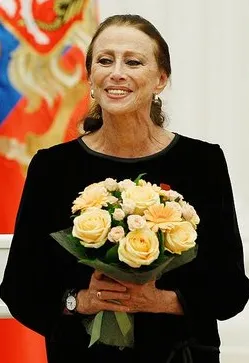2014 – Two mudslides in Badakhshan, Afghanistan, leave up to 2,500 people missing.
On May 2
16
Important Days
45
Important Events
268
Births and Deaths
recorded.
Holidays and Occasions
Events
Births and Deaths

Birth Anniversary of the Third Druk Gyalpo: A Tribute to a Visionary Leader
The birth anniversary of the Third Druk Gyalpo, His Majesty King Jigme Dorji Wangchuck, is not merely a date on the calendar; it represents a pivotal moment in Bhutan’s history. Born on May 2, 1929, his reign from 1952 to 1972 marked an era of profound transformation for this small Himalayan kingdom. Under his visionary leadership, Bhutan transitioned from feudalism to a more modern state while maintaining its unique cultural identity. This day stands as a celebration of his remarkable contributions to nation-building and social progress...

Flag Day in Poland: A Celebration of National Identity
Flag Day, celebrated on May 2nd in Poland, is a day of profound national pride and remembrance. This day marks the official recognition of the Polish flag as a symbol of the nation's sovereignty, culture, and history. It serves not only as a celebration but also as an opportunity for reflection on the struggles and triumphs that have shaped Poland over centuries. Historically, the Polish flag can be traced back to its roots in the early days of Polish statehood...

Indonesia National Education Day: Celebrating Education and Its Impact
National Education Day in Indonesia, observed on May 2nd every year, marks the anniversary of the birth of Ki Hajar Dewantara, a pivotal figure in Indonesian education history. This day serves as a reminder of the vital role education plays in the development of individuals and society as a whole. It emphasizes the importance of access to quality education for all Indonesians, as enshrined in the nation's constitution. Ki Hajar Dewantara founded Taman Siswa (Garden of Students) in 1922, which aimed to provide education that was rooted in Indonesian culture and values...

Teachers' Day in Iran: Honoring Education and Teachers
Teachers' Day in Iran is celebrated annually to honor the significant contributions of educators to society and the development of future generations. This day, which falls on May 2nd in the Solar Hijri calendar, commemorates the martyrdom of Morteza Motahhari, a revered philosopher, theologian, and educator who devoted his life to teaching and enlightenment. The importance of this day lies not just in recognizing individual teachers but also in highlighting their pivotal role as builders of knowledge and character within communities.Historically, education has been considered a cornerstone for social progress in Iranian culture...

Celebrate International Harry Potter Day: A Guide to the Wizarding World
International Harry Potter Day is a celebration dedicated to the beloved book series created by J.K. Rowling. Observed on July 31st, the day marks the birthday of not only Harry Potter but also his creator...

World Tuna Day: Promoting Sustainable Fishing Practices
World Tuna Day, celebrated on May 2nd each year, serves as a significant reminder of the crucial role tuna plays in marine ecosystems and global economies. Recognized officially by the United Nations in 2016, this day highlights not just the value of tuna as a resource but also emphasizes sustainable practices necessary for its preservation. With various species like Bluefin, Yellowfin, and Albacore being integral to many communities' diets and livelihoods worldwide, understanding their significance is more relevant than ever.Tuna fishing has been a traditional practice across different cultures for centuries...

The Last Day of the Festival of Ridván in the Baháʼí Faith
The last day of the Festival of Ridván holds profound significance within the Baháʼí Faith, commemorating the final day that Bahá'u'lláh, the founder of this vibrant religion, publicly declared His mission in a garden near Baghdad in 1863. This festival, which lasts for twelve days from April 21 to May 2 according to the Gregorian calendar (though its exact dates shift annually with the equinox), symbolizes not only a momentous event in religious history but also represents themes of unity, renewal, and spiritual awakening. In essence, Ridván is named after a beautiful garden that translates to "Paradise," where Bahá'u'lláh spent these critical days. The importance placed on this occasion stems from its central message: that humanity is one family under God...

Anniversary of the Dos de Mayo Uprising: Celebrating Madrid's Historic Resistance
The Dos de Mayo Uprising, celebrated annually on May 2nd, marks a significant moment in the history of Madrid and, indeed, Spain. This event in 1808 was a reaction to the French invasion during the Peninsular War, an insurrection that ignited a national consciousness among Spaniards. It represents not just resistance against foreign occupation but also embodies the spirit of courage and sacrifice that has since been enshrined in Spanish culture.On this day, citizens remember how ordinary people rose up against tyranny...

Ahudemmeh: The Martyr of the Syriac Orthodox Church
The Ahudemmeh, also known as the Holy Qurbana or the Divine Liturgy, represents not just a ritual but a profound expression of faith and community within the Syriac Orthodox Church. This sacred service is rooted in ancient traditions and rituals, symbolizing unity among believers and their connection to God. The importance of Ahudemmeh lies in its ability to convey theological teachings through liturgical actions, music, and communal participation.Historically, the origins of Ahudemmeh can be traced back to early Christianity when it emerged from the practices established by the Apostles...

Athanasius of Alexandria: Defender of Christian Orthodoxy
Athanasius of Alexandria, a towering figure in the history of early Christianity, was born around 296 AD in the city that bears his name. His life and work are steeped in the theological battles that shaped Western Christianity during its formative years. Athanasius is perhaps best known for his staunch defense against Arianism, a heresy that questioned the divinity of Jesus Christ. His unwavering commitment to orthodoxy earned him a revered position within Christian tradition...

Bolesław Strzelecki: A Pillar of the Catholic Church in Poland
Bolesław Strzelecki, a name that resonates deeply within the Catholic Church, represents a significant figure in the tapestry of faith and community service. His journey reflects not only personal devotion but also the profound impact he had on countless lives throughout Poland and beyond. Strzelecki’s work exemplifies the enduring nature of faith amid challenges, serving as a reminder of how one person's commitment can ignite hope and change in others. The Whispers of Faith: The Origins of Bolesław Strzelecki Bolesław Strzelecki was born on July 12, 1895, in Lwów, which is now part of Ukraine but was then a vibrant city within the Austro-Hungarian Empire...

Boris I of Bulgaria: The Founder of the Bulgarian Orthodox Church
Boris I, a pivotal figure in Bulgarian history, is celebrated for his role in the Christianization of Bulgaria during the 9th century. His reign from 852 to 889 marked a transformative period that shaped the spiritual landscape of the Bulgarian people. This decision to adopt Christianity not only unified various Slavic tribes under one faith but also laid the groundwork for a distinct Bulgarian identity and culture. In an era where paganism reigned supreme, Boris's vision foresaw a united state anchored in religious beliefs that would foster cultural and political stability...

The Legacy of Germanus of Normandy: A Historical Overview
Germanus of Normandy, also known as Saint Germanus, holds significant historical importance in both ecclesiastical and cultural contexts. This revered figure emerged from the folds of early medieval history, embodying the spirit of faith, courage, and wisdom. His life traverses the boundaries of legend and reality, representing a bridge between ancient traditions and burgeoning Christianity in Europe. Born around 495 AD in the city now known as Amiens, France, he was destined for a life that would intertwine with pivotal moments in the history of Christianity...

Joseph Luu Van Nguyen: A Pillar of the Catholic Church
Joseph Luu Van Nguyen, a name deeply rooted in the history of the Catholic Church in Vietnam, symbolizes faith, resilience, and an unwavering commitment to his beliefs. Born on April 26, 1910, in the village of Phu My, within the province of Binh Dinh, Joseph grew up amidst a society influenced heavily by both Catholic teachings and traditional Vietnamese values. His life journey reflects not only personal devotion but also the broader narrative of Christianity's challenges and triumphs in Vietnam. His importance lies not just in his clerical duties but as a figure who stood firmly against persecution during tumultuous times in Vietnamese history...

Wiborada: The Patron Saint of St. Gallen in the Catholic Church
Wiborada, a name that resonates through the corridors of history, represents not just a saint but a symbol of steadfastness and devotion within the Catholic Church. In the tapestry of Christian heritage, she is known as one of the first female saints recognized in Switzerland, celebrated for her piety and miraculous acts during a time when faith faced trials. Her significance cannot be overstated; she embodies the spirit of resilience against adversities, reminding us that faith can illuminate even the darkest paths. The Silent Strength: A Life Dedicated to Faith Born in 965 AD in what is now modern-day Switzerland, Wiborada chose to dedicate her life to God from an early age...

William Tirry: A Pillar of Faith in the Catholic Church
William Tirry, a name that echoes through the corridors of history, represents a significant chapter in the annals of the Catholic Church. Born in Ireland during a period marked by tumultuous political and social changes, Tirry's contributions to religious life have left an indelible mark on both his immediate community and beyond. His life's work not only reflects his deep faith but also embodies the broader struggles of Catholics during his time. Understanding Tirry's role within the context of Irish Catholicism offers us insights into the challenges and triumphs faced by a devoted clergy member amidst an evolving world...

































